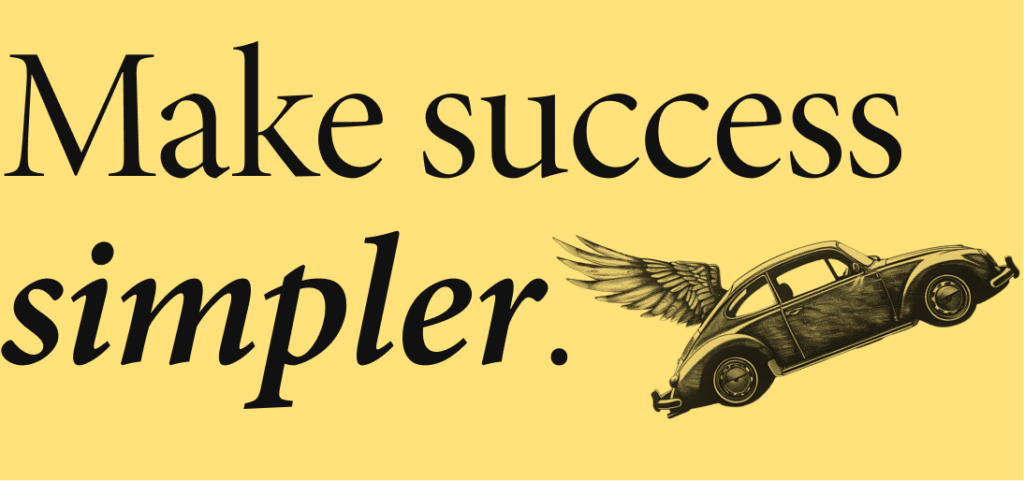Welcome to One Thing Better. Each week, the editor in chief of Entrepreneur magazine (that’s me) shares one way to be more successful and satisfied — and build a career or company you love.
If this email is useful to you, please share it with others!
Today’s one thing: Asking for what you want.
That one thing, better: Knowing what you need.

Have you ever asked for something — but were misunderstood?
Or…
Has someone asked you for something — and even though you tried to help, you were unhelpful?
Maybe it happened with a boss, a customer, a partner, or even a spouse. Maybe it’s holding up a deal right now. Maybe it’s causing tension at home.
Recently, this happened to me: I asked a question, got the wrong answer, and was annoyed.
As I thought about why, I had an ah-hah moment. I realized why these disconnects often happen, and how we can fix them!
It starts by recognizing this:
People don’t always ask for what they want.
Instead, they often ask for bad examples of what they want.
Today, I’ll explain why — and give you a better way to ask questions, give answers, build relationships, solve problems, and become someone’s hero.
But first, here’s why I was so unhappy…
I was in Chicago for a speaking engagement last month — and I was running late.
It was 8:30 am, and I had 20 minutes to eat breakfast before heading to the venue. So I ran to the hotel concierge and said: “Excuse me, where’s the quickest place to get, like, an egg and cheese sandwich? I need a fast breakfast.”
The concierge replied: “Our market downstairs has sandwiches. Or you could go to the deli around the corner.”
I raced to the market, which only had crappy turkey sandwiches. Then I raced to the deli, where I found more deli meat. Blech! Then I raced back to the hotel and spotted — omg! — a breakfast buffet. Perfect.
As I sat eating my eggs, I wondered why the concierge didn’t tell me about this buffet. It was exactly the fast breakfast I wanted.
Then I realized: I asked my question all wrong.
And after that, I realized: OMG, we all ask questions wrong.
How we flub our questions
To appreciate why we’re so bad at asking questions, let’s first consider the question I asked.
It was:

At the time, it felt like I was asking one question. But now that I’ve written it out, I realize that I bundled two things together — a question and a statement. Like this:

I asked a question about sandwiches. The concierge gave an answer about sandwiches.
But in truth, I didn’t care about sandwiches! I cared about a fast breakfast, which I buried as an afterthought. That’s why his answer was unhelpful.
This is a problem we all make:
New to this newsletter? Subscribe!
We don’t lead with what we need
When we ask for things, what are we really asking for?
Here’s what I think: We’re often bundling two things together…

We have a goal — a specific outcome we desire. But instead of stating that goal, we often ask for whatever we think will achieve that goal.
This is why I wrote above:
People don’t always ask for what they want.
Instead, they often ask for bad examples of what they want.
It’s exactly what I did at that hotel. My goal was to quickly satisfy my hunger, but I led with how I thought I’d achieve that goal — which was the sandwich.
It reminds me of something that billionaire serial entrepreneur Naveen Jain says. His son Ankur recalled it in an Entrepreneur story:
“In every partnership, every stakeholder has maybe two or three things they really care about, and the rest are fungible. Sometimes they’ll tell you what those are; sometimes they won’t. Ninety-five percent of the time, two out of the three things they care about are at direct odds, so you just focus on the one, and the rest flows.’ ”
I’ve experienced that myself! Here’s an example from my work at Entrepreneur:
I once negotiated an in-kind deal with a corporate partner. They’d do something for us, and we’d do something for them. “What do you want?” I asked. They sent me 20 demands — various kinds of advertising, social media exposure, consulting, and more.
I wondered: Why do they want all this stuff?!?
So I talked with the partner lead and learned this: They didn’t actually care about the individual requests. Instead, the partner lead needs to show their boss — who then needs to show their boss — that the deal is worth their time.
That’s helpful! Once I understood the goal they desired, we could discard the nonsense they asked for and figure out how to make the boss happy.
This repeats itself in so many ways. For example, think about the last time you argued about something dumb. Your goal was probably to feel understood and respected — but you didn’t want to say that, so you argued over something you hoped would achieve that goal (but probably didn’t).
So, why don’t we just say what we want upfront? Here’s why:
We’re uncomfortable talking about goals.
Goals can feel personal. Needy. Possibly weird. Maybe we’re not even clear what they are. Maybe we’re not sure it’s appropriate to share or ask for them.
So instead, we create a proxy for those goals. We guess what will get us there, and ask for that instead. It is a confusing way to communicate, leading us to argue about pointless things, demand stuff we don’t need, and seek sandwiches we don’t want.
The solution is therefore simple: We must start with the goal.
How? By using this simple filter: “What do you want to accomplish?”
Before asking for anything, ask yourself that question. What do I want to accomplish? Do you really know? Are you able to ask for it? Can you ask without creating distractions?
And if you’re on the receiving end of someone’s question, ask them outright: What do you want to accomplish? You’re inviting clarity. They’ll appreciate it! They’ll tell you whatever they hesitated to say before.
When we know what we want, and we say what we want, we start to get what we want. And isn’t that what we all actually want?
That’s how to do one thing better.
